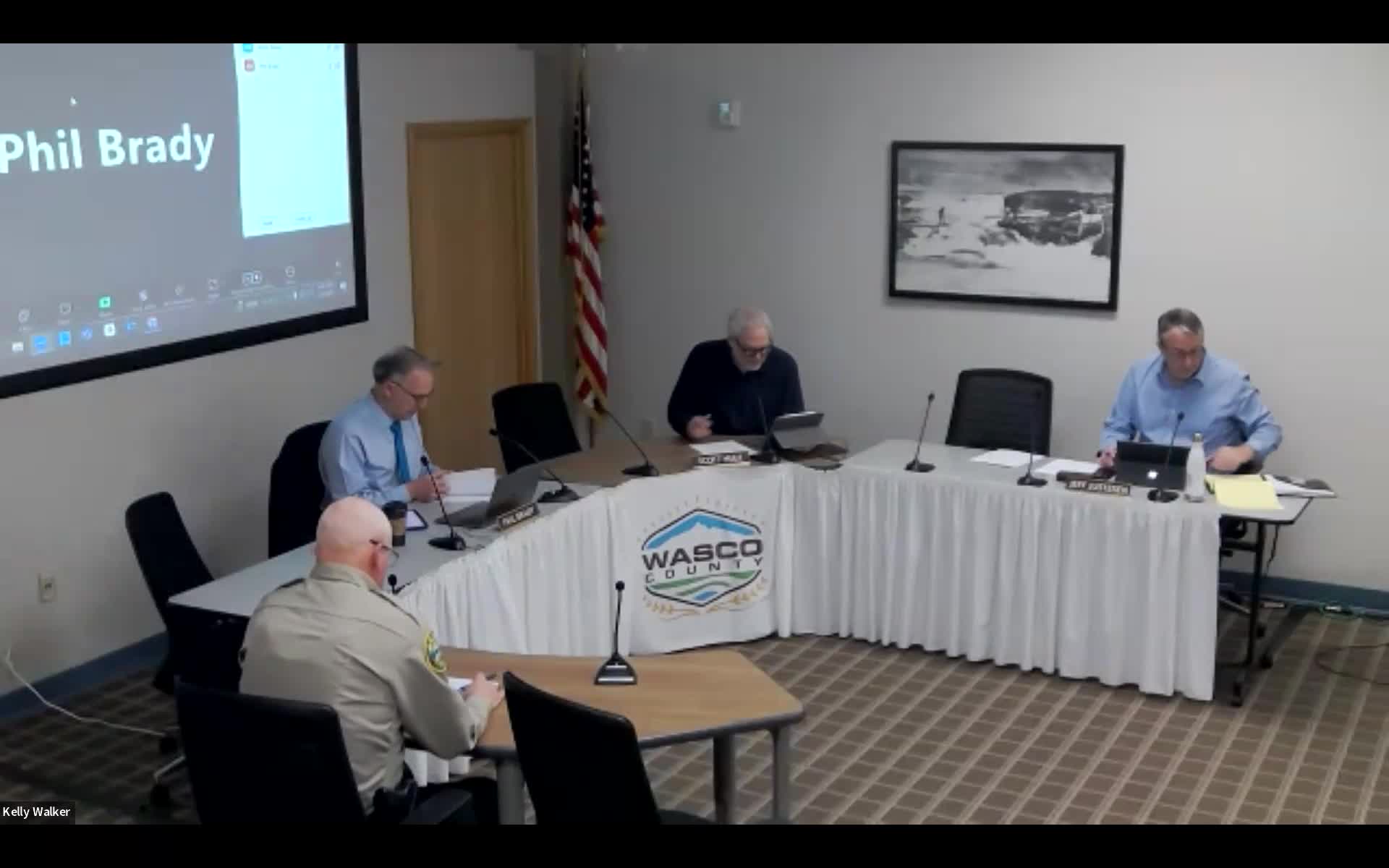Article not found
This article is no longer available. But don't worry—we've gathered other articles that discuss the same topic.
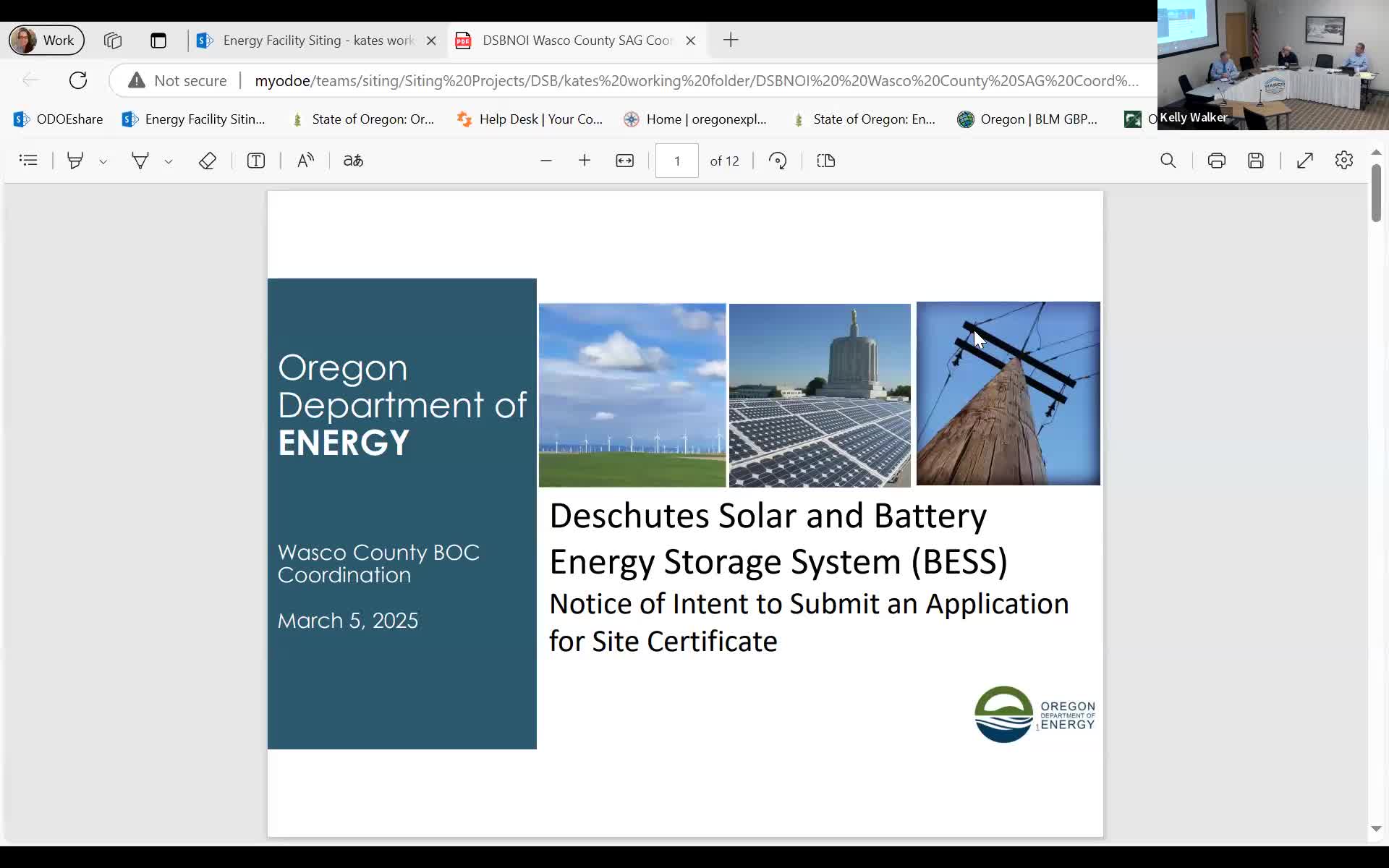
State receives notice of intent for large Juniper‑Flat solar and battery project; ODOE begins agency coordination
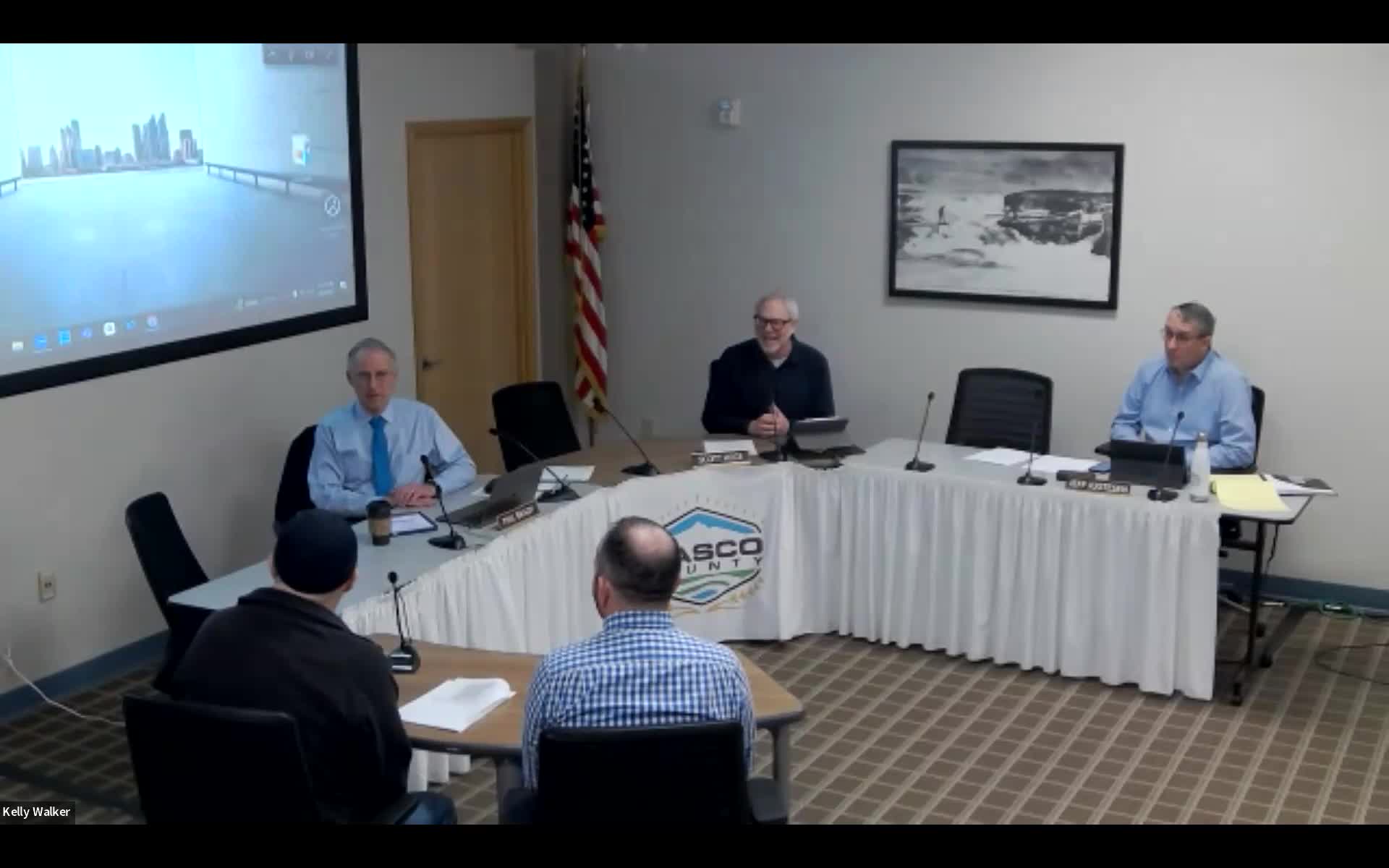
Wasco watermaster outlines groundwater concerns in Mosier, The Dalles and 15‑Mile basin; county study planned
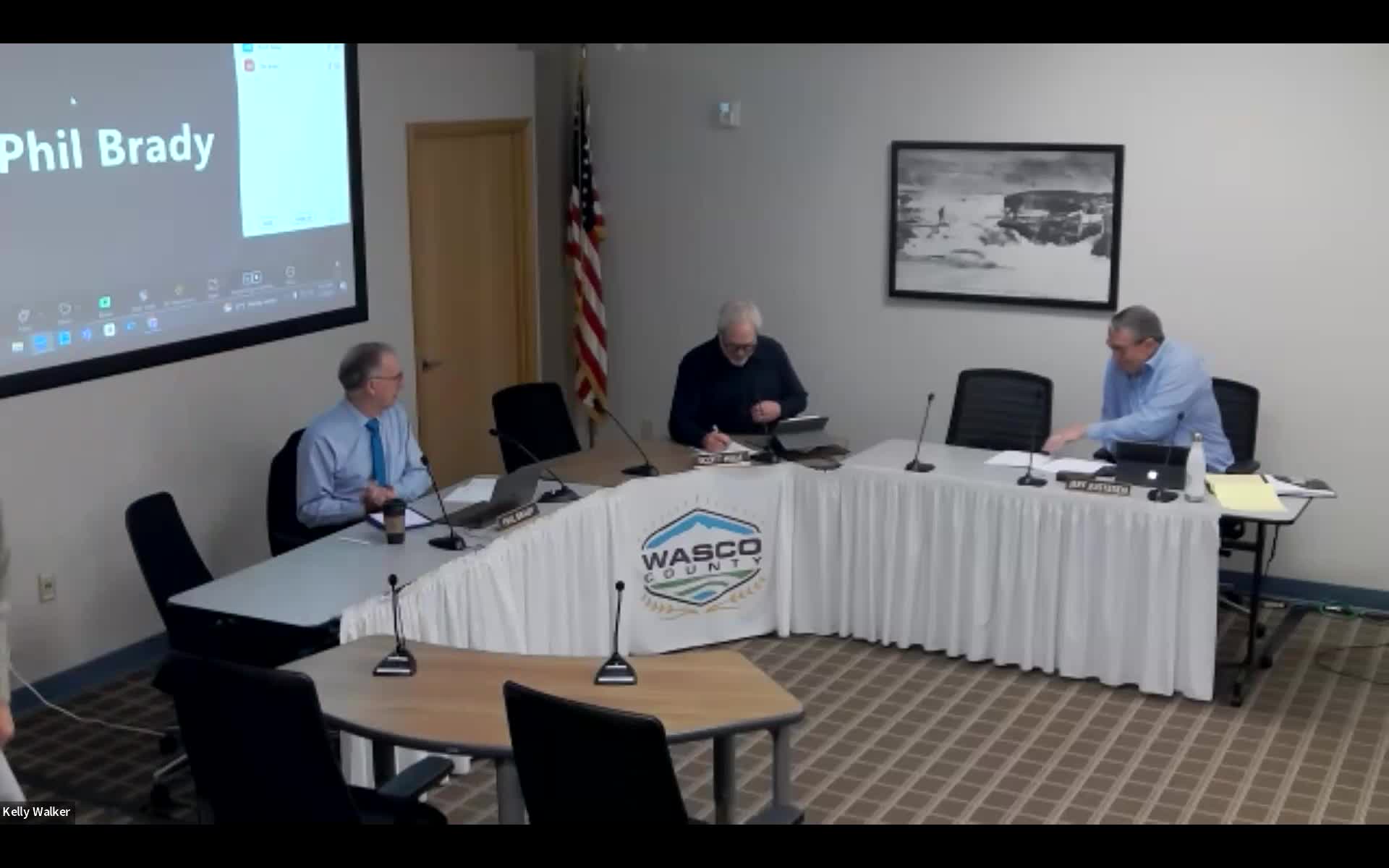
Wasco County commissioners give preliminary nod to regional building-fee changes; state review required
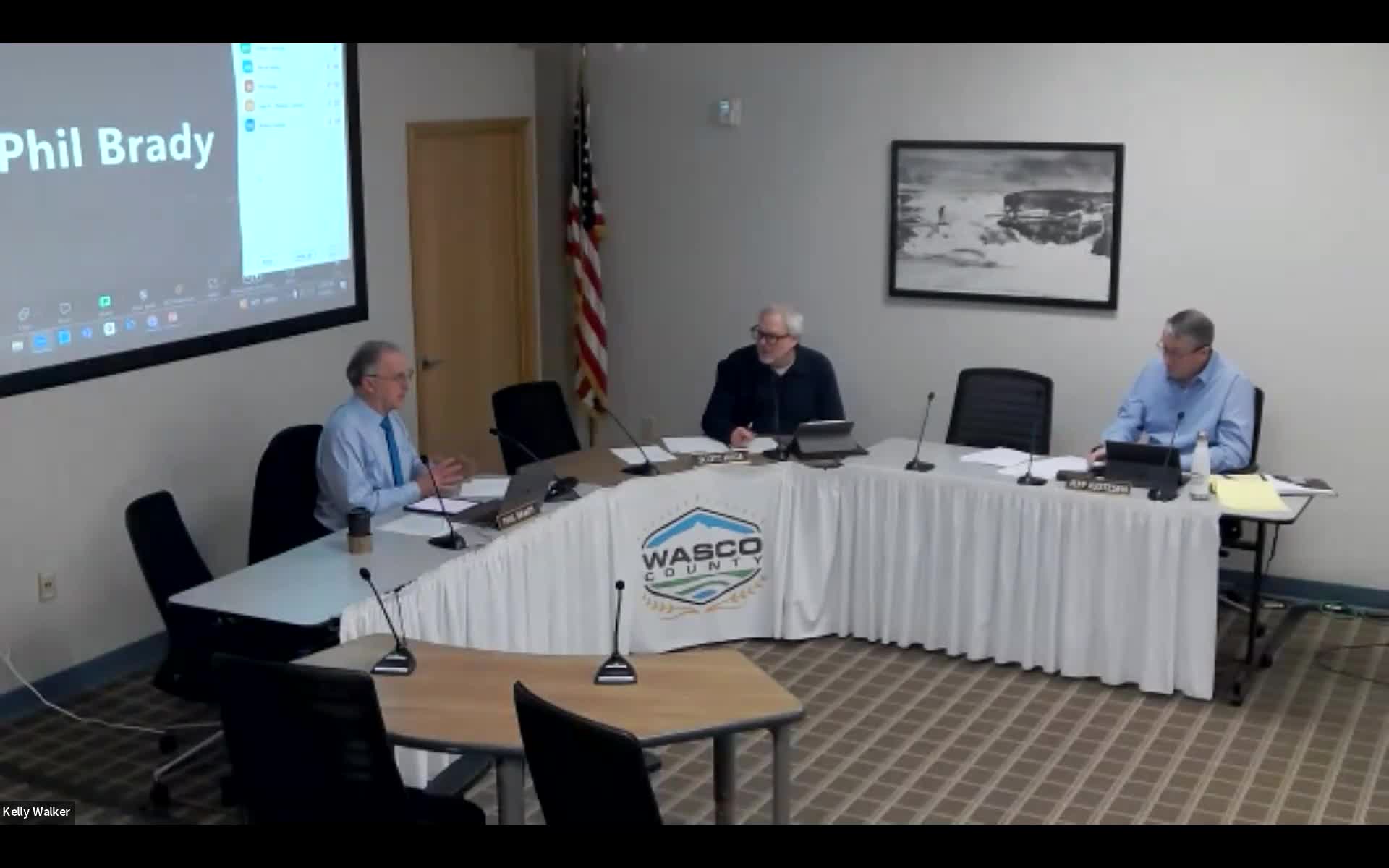
Commission authorizes staff to negotiate loan-like tenant-improvement financing for Discovery Center HVAC repairs
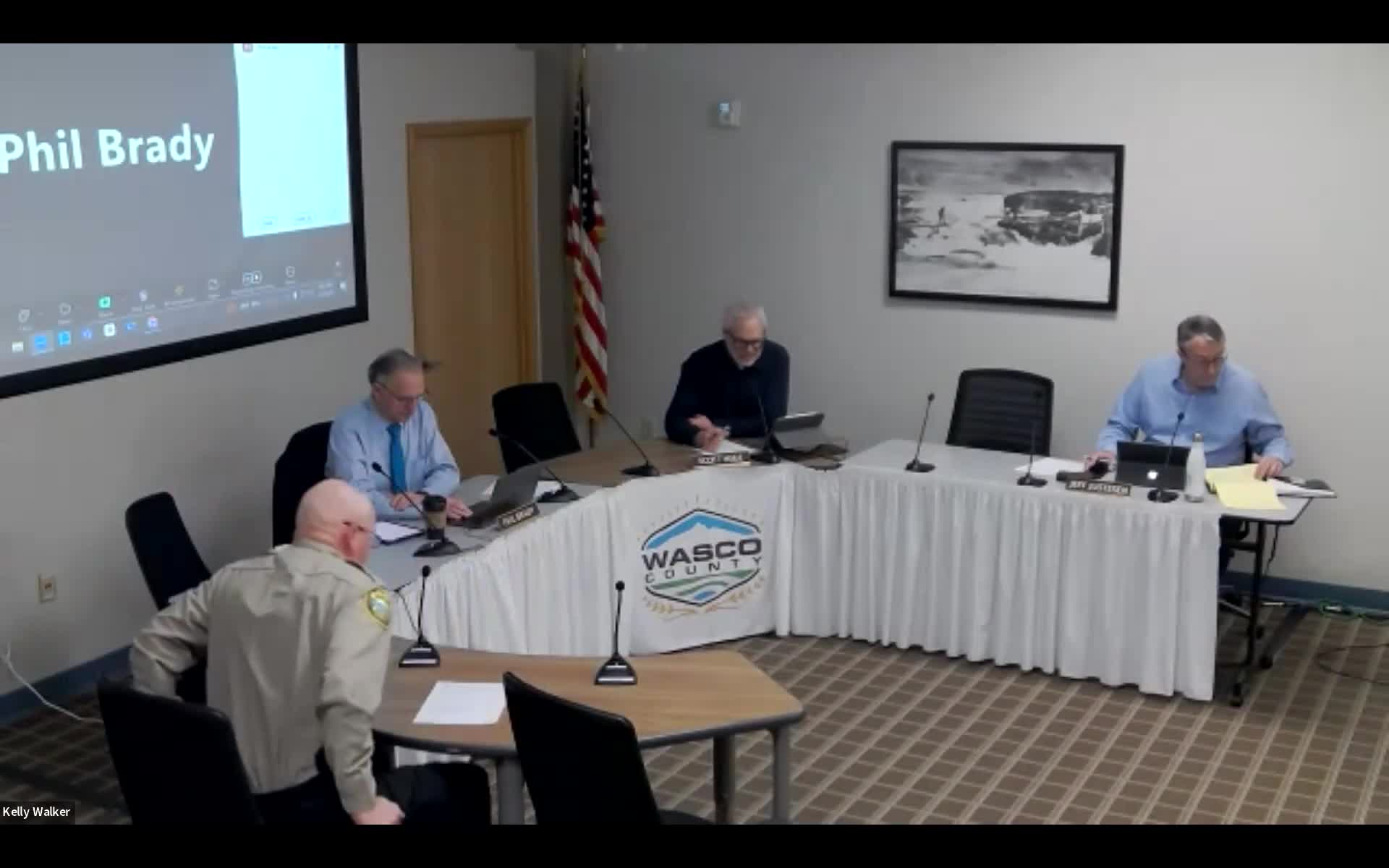
Commissioners approve Northern Oregon Regional Tactical Response Team IGA
